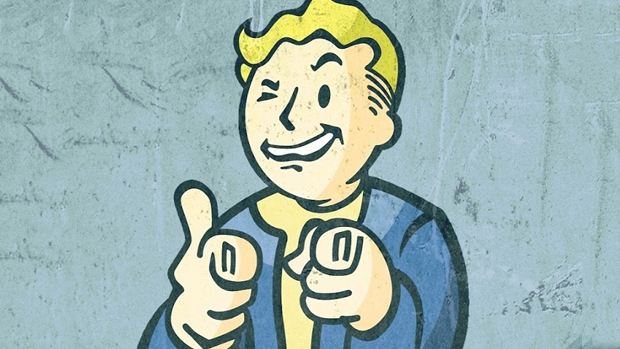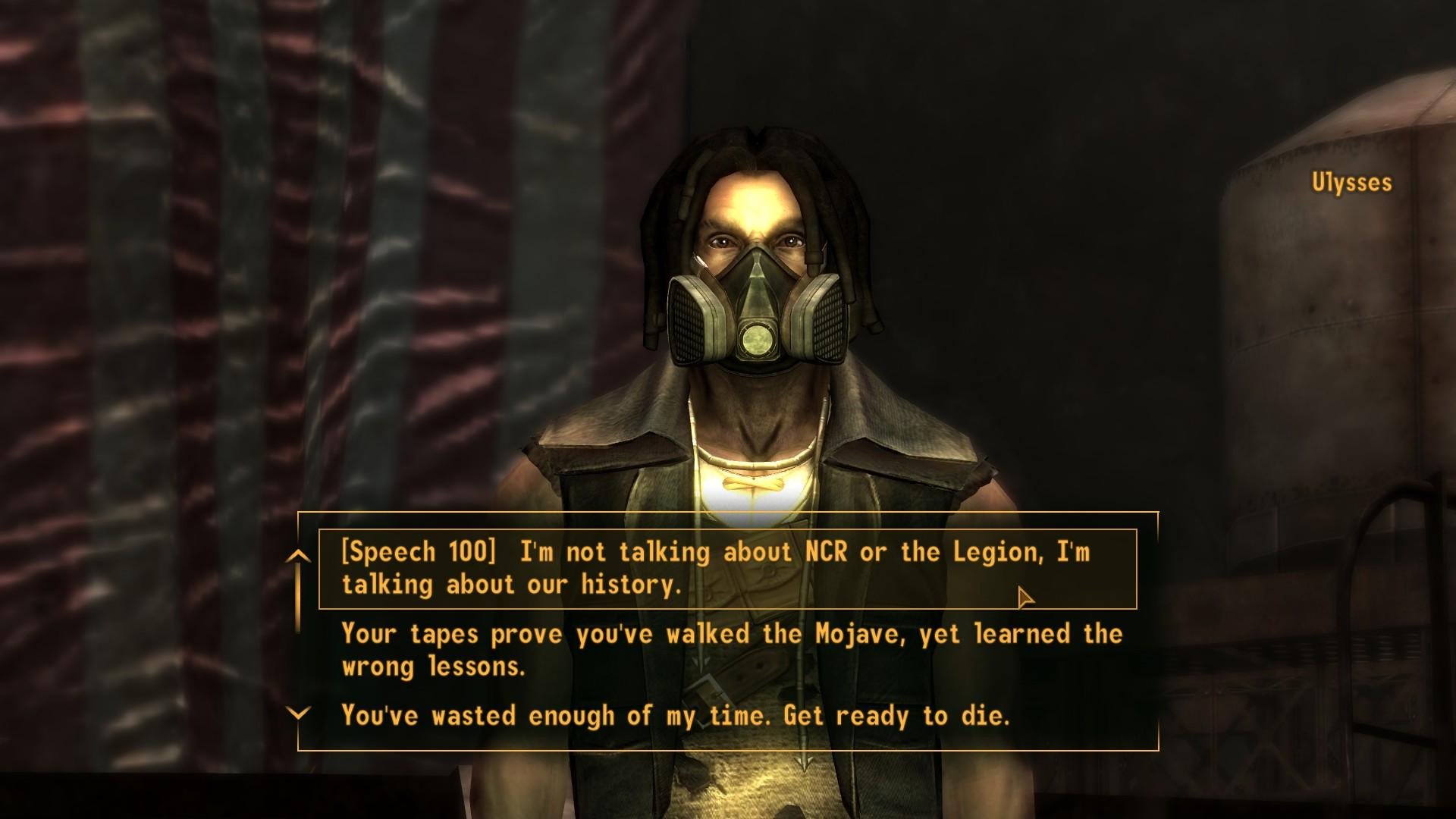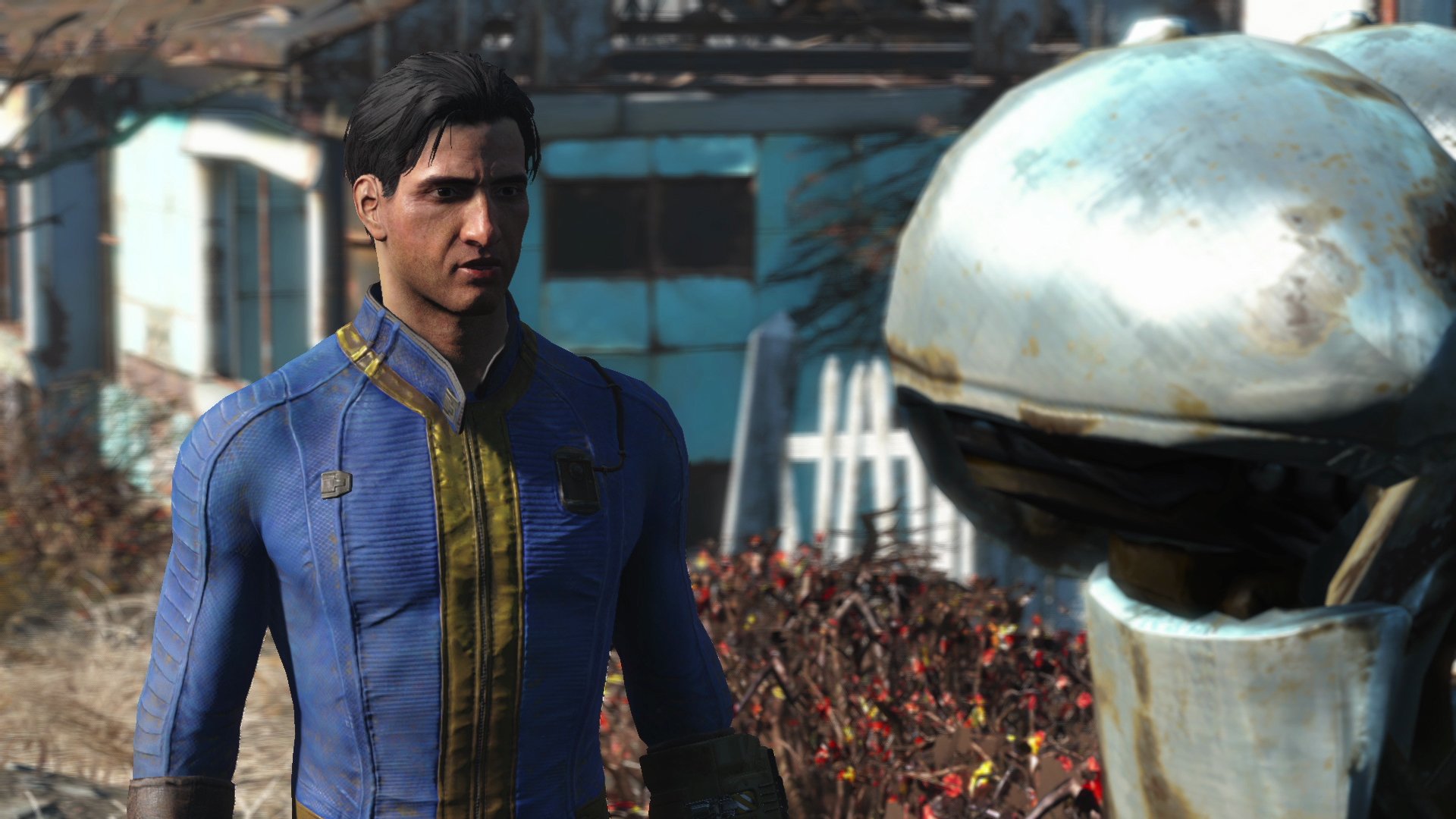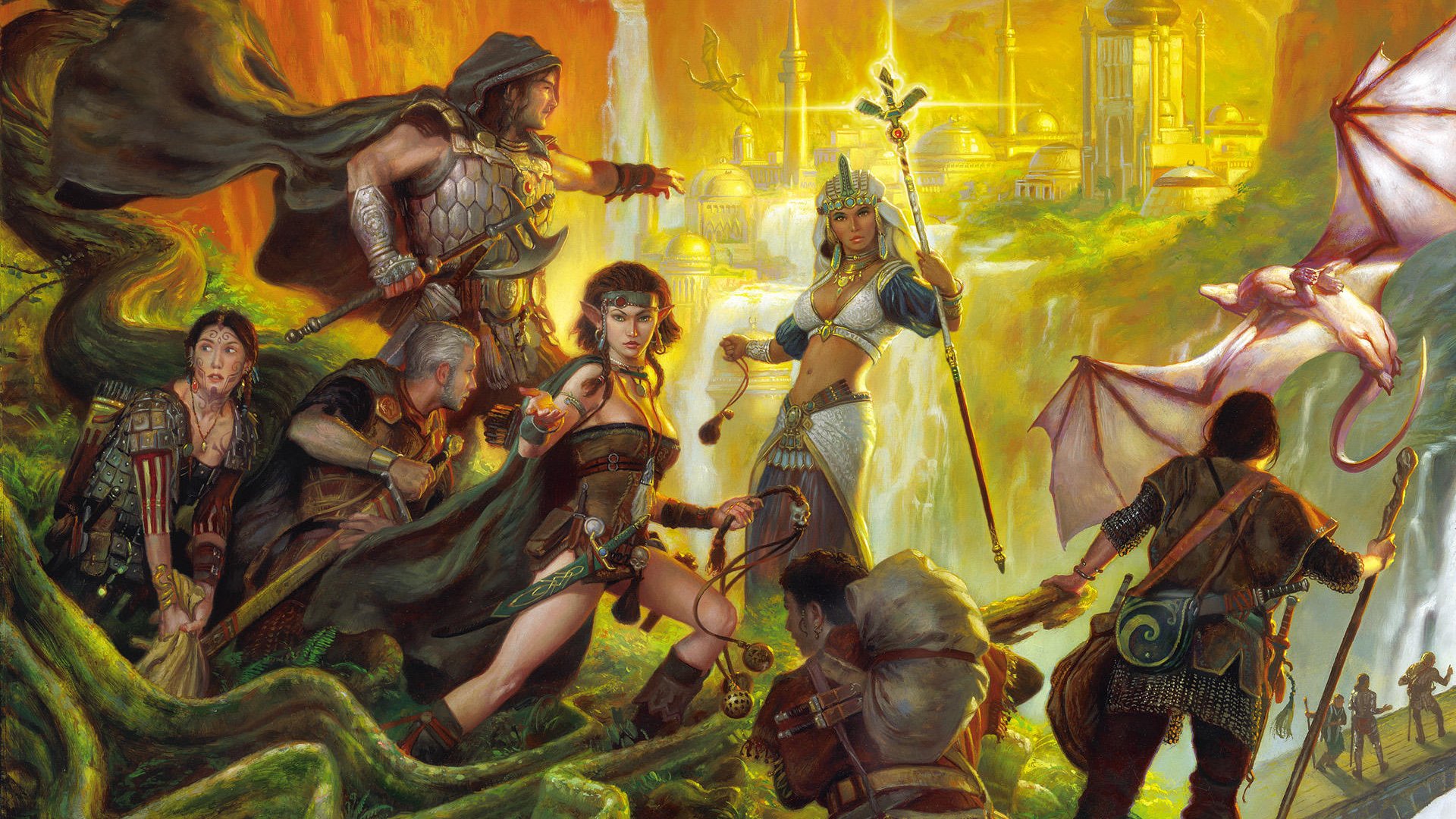Diplomacy: the final frontier for games like Fallout
I was hoping that, come this November, I could talk my way through the entirety of Fallout 4. To get a sneak preview of what this magical gaming experience might be like, I booted up Fallout: New Vegas for the first time, with the intention of roleplaying as a diplomatic, pacifistic mediator, settling any and all disputes with sound reasoning and empathetic conversation. When creating my character, I maxed out my Charisma stat, boosted my Intelligence, and pshaw-ed at all combat-related stats and perks. And my attempt to bend this beloved RPG to my vision of a sweet-talking wasteland wanderer was an utter failure.

Oh sure, getting the first few NPCs to like me was no problem, and I could simply run on by all the aggressive critters I didn't want to kill. But within mere hours, my Courier's primary method of interacting with desert denizens was moseying up to them in hopes of initiating conversation, only to turn tail and flee (presumably whilst crying) when they turned out to be bandits who opened fire with no intention of talking things out. And worse still, when I did have the opportunity to employ my character's charming magnetism, it was typically a single, pass/fail dialogue choice that required no effort whatsoever.
Where was the challenge? Why couldn't convincing a hardened raider to be my friend feel as nuanced, difficult, and ultimately rewarding as gunning him down in a shootout? After further FAQ research, I learned that achieving the conversation-focused, no-kill run I had envisioned would mean relying on my companions to do all the killing for me, which didn't seem to be in the spirit of the happy-go-lucky non-aggression that my Courier stood for. Though my wish to play New Vegas as a postapocalyptic conversation simulator might've been a little naive, I felt cheated that my diplomacy had been reduced to a binary transaction: my Speech skill was either high enough to sway someone, or it wasn't, and that was the extent of my input.

Convincing an assailant to lay down arms or manipulating someone into doing your bidding ought to be a complex process, full of twisting dialogue trees and persuasive arguments. Putting forth a bold statement or coaxing someone into seeing your point of view could be as much of a gamble as a long-bomb grenade toss or a desperate no-scope sniper shot during combat, if only the art of negotiation was given as much weight. We've posited what it might be like to spruce up pivotal RPG conversations with tricks like unseen countdown timers or a simulacrum of subtle facial expressions, but it doesn't even have to go beyond the dialogue itself.
Getting someone to see your perspective isn't typically accomplished with a single sentence, as in most mainstream RPG dialogue. It's a progression of push-and-pull: ideas are put forth and justified, fears are assuaged, tempers are cooled, common ground is discovered. If you misspeak, you might swiftly undo all the persuading you've attempted up to that point. Being able to convince an NPC that your way is the right way ought to be a step-by-step discussion, not a "I PUT POINTS IN THIS STAT SO NOW YOU DO WHAT I SAY" command. The latter isn't all that different from barking orders at a virtual denizen whilst sticking them up at gunpoint (which, for what it's worth, will be an actual Perk in Fallout 4).

That's not to say that I don't appreciate the Charisma stat in Fallout, or the Paragon/Renegade system of Mass Effect, and so forth. It's just that it feels like there could be better game systems in place to reflect the difficulty of true diplomacy. And it's not just the RPG genre that seems to have this problem. I've no interest in devising my own tale of diplomatic adventuring in the number-centric ecosystems of intricate 4X games like Civilization 5 or Crusader Kings 2. Diplomacy is certainly an option in these games, but there's no narrative weight to any of it; you can initiate negotiations, but they end up looking more like an exchange of resources on a calculator rather than a conversation. It's up to you to give those deals any anecdotal significance, and like the 4X genre as a whole, that's just not my bag, baby.
The recently terminated MMO Vanguard: Saga of Heroes put a fascinating spin on the art of arbitration: turning conversations into a card game. As the Diplomat class, you would construct a deck of ingeniously named action cards - things like Evasive Quip, Astute Reasoning, Gracious Remark, and Infallible Proof (I highly recommend checking out the complete card list). It wasn't a perfect system; the mechanics of play were convoluted, and the actual dialogue between you and the NPC was locked to fairly droll banter no matter what card you played. But the idea to adapt the back-and-forth of conversation into the turn-taking of competitive cards is brilliant. When you enter a conversation with an agenda, you devise a plan to accomplish your objective, with the knowledge that you'll have to react and improvise to deal with whatever the other person throws out - just like any head-to-head card battler. It's a clever analogue, and I hope to God that some clever game developer eventually rips it off.
Sign up to the GamesRadar+ Newsletter
Weekly digests, tales from the communities you love, and more

Deep, layered diplomacy does exist in video games, albeit far, far removed from the mass appeal of a series like Fallout. The Age of Decadence is currently on Steam's Early Access, and gives the player a ton of content to chew on even if they're only interested in talking things out. Most interestingly, your (often lengthy) responses during conversation aren't given obvious consequences, counter to the clearly designated choices in BioWare's dialogue wheels. Much like real conversation, you'll sometimes have to simply throw something out there without knowing how the recipient will react, which makes you consider your options that much more carefully.
There's also the current leader in virtual diplomacy: EVE Online, where some players have made a name for themselves as skilled negotiators, able to persuade entire in-game corporations into arriving at mutually beneficial agreements. It's to the point where some intrepid diplomats have taken it upon themselves to elucidate negotiation theory, helping their fellow space-capitalists reach better, increasingly beneficial accords whenever possible. EVE has a leg up on scripted RPGs, seeing as its conversations benefit from the elegance and unpredictability of actual human interaction, with participants discussing treaties or mergers one chat-window line at a time. But even if a random RPG bystander can't perfectly mimic the psyche and (ir)rational nature of a real human mind, it could at least require more than a stats check mid-convo to change the entire course of its pre-programmed existence.

Unfortunately, this kind of meticulous approach to in-game diplomacy isn't a priority, and likely never will be - even for a colossal big-budget game like Fallout 4. Bethesda appears to have spent its resources - that is, time and money - to make conversations more impressive, but less interactive. There are over 111,000 lines of recorded voiceover to help bring the dialogue to life in Fallout 4, but from what we've seen thus far, your replies are limited to four categories: Positive, Neutral, Negative, or Question responses, all relegated to tiny sentence fragments that don't telegraph the exact tone (or even meaning) of whatever you're about to say. I have to wonder what place Charisma will have in Fallout 4's conversations - but until then, I'll keep hope alive for a situation in which I convince a giant killer mutant that violence won't solve our problems. And maybe we'll actually have to, y'know, talk it out.
Lucas Sullivan is the former US Managing Editor of GamesRadar+. Lucas spent seven years working for GR, starting as an Associate Editor in 2012 before climbing the ranks. He left us in 2019 to pursue a career path on the other side of the fence, joining 2K Games as a Global Content Manager. Lucas doesn't get to write about games like Borderlands and Mafia anymore, but he does get to help make and market them.



